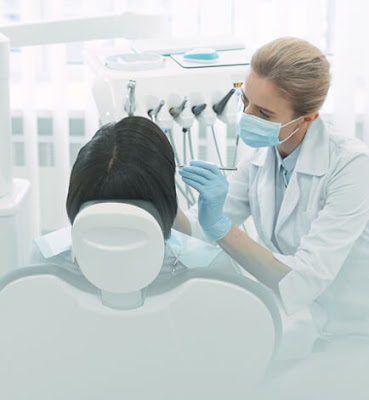Simple Home TMD Treatments To Give You Relief and Eventually Overcome It
There are certain conditions of the oral cavity that can cause apprehensions. One such condition is a disorder of the temporomandibular joint known as a temporomandibular disease (TMD). Learn why it happens and, if it should happen to you, take care of it with these simple home TMD treatments Melbourne dentist recommends.
The temporomandibular joint
The temporomandibular joint is a marvel. It is a collection of tissues, tendons, ligaments and muscles that connect your skull to your lower jaw. You can move your jaw sideways, up and down and rotate because of this joint. Should there be an inflammation in the joint and dislocation? The result is you will have difficulty in moving your jaw. You may have ear pain, headaches, neck problems, and mouth problems. Grinding your teeth, arthritis and stress are a few causative factors leading to TMD. Your dentist will diagnose and confirm the condition. Depending on the diagnosis the TMJ treatment Melbourne dentist recommends could involve other doctors and physiotherapists as well as ENT doctors. However, in most cases, you can manage it with proper care at home under the guidance of your dentist.
Do this at home for your TMD
Surgery may be a last resort. Before you go in for any such procedure it is best to try out therapies at home.
- Give it rest. TMD issues usually resolve within a month or a couple of months. Avoid grinding your teeth hard and eating hard foods in the meanwhile. Eat only soft foods and in small morsels that do not need you to stretch your mouth wide open.
- Apply compresses. You can alternate hot and cold compresses to reduce inflammation, reduce pain and promote healing of stretched ligaments and tendons.
- Sleep on your side and use a pillow that provides support for your neck and head. A firm pillow is to be preferred.
- If pain is an issue then your dentist is likely to prescribe anti-inflammatory drugs and anti-depressants.
- Exercise your jaw. Your caring dentist will show you how to exercise your jaw with up and down movements and rotary movements.
- Practice yoga and deep breathing techniques to gain a measure of control over pain. Relaxation will help reduce stress. Other alternative therapies that could provide relief are acupressure, massage and biofeedback training. One technique you should try is electromyography that measures muscle tension and then EMG biofeedback. It will reduce pain levels.
You should feel better in a couple of weeks. During this period you should abstain from clenching your jaw. If you grind your teeth during sleep then use a protective device. Do not chew gum and eat anything that is too hot or too cold. Try to maintain the correct posture at all times.
Do not ignore TMD
The symptoms of TMD can be ambiguous and often mistaken for some other dysfunction in the body. TMD symptoms include headaches, migraines, jaw pain, back pain, neck pain and sleep disorder. Ignoring a check-up and diagnosis could either result in further harm to the ligaments and tendons as well as the disc. Some other symptoms may relate to other conditions. It is best to consult your TMD treatment Melbourne dentist for a thorough check-up to pinpoint the issue. Holistic Dental offers holistic treatments for people with TMJ/TMD conditions.




Comments
Post a Comment